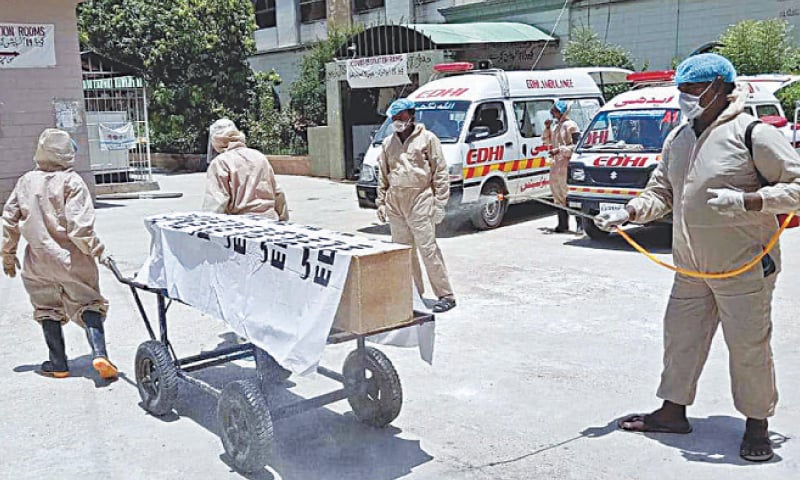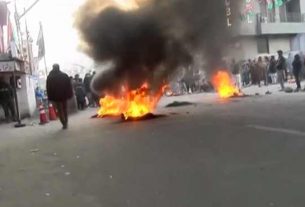KARACHI: The Sindh government has revised the standard operating procedures (SOPs) for funerals of Covid-19 patients relaxing the tough conditions and allowing normal rituals.
On the recommendations of health experts, “very much normal” rituals have been restored through the revised SOPs issued by the provincial health department. However, people have been advised to strictly adhere to the precautions, explained in the SOPs, in order to protect participants in the rites from contracting the contagion.
“To devise a methodology which is convenient and safe to all involved in death rites keeping in view religious, cultural and customary dignified burial without compromising health of near and dear ones” is the title of the document defining the revised SOPs and issued to health facilities across the province.
The document says that infection communication by a living Covid-19 person is through contact or coughing or sneezing (droplet transmission). While it is obviously not the case after death of such a patient, care is needed in coming close to the body, it adds.
Properly washed and shrouded bodies be handed over to heirs, hospitals told
“Secretions coming out of natural orifices e.g. mouth, nose and anus may harbour the virus. People touching the body or coming in contact with body secretions can acquire the virus. Safety of those handling the body is of prime importance,” explains the document.
“Adequate body disinfection in the hospital as well as at ghusl (washing) and kafan (shrouding) [stages] virtually eliminates the risk. To date, there is no evidence of a person having become infected from exposure to the bodies of persons who died of Covid-19.”
According to the document, beyond shrouding, there is no need for government or administration personnel to get or remain involved in the rites. The body should be handed over to the heirs for further rites like funeral and burial.
It came up with details of different protective measures for the hospital administration and health workers. It mentions the most important rites — funeral prayers and burial — and allows normal religious practices with healthcare precautions.
“Janaza prayers can be offered at usual place, masjid or graveyard,” it says, adding that there is, however, a risk of person-to-person infection transmission at gatherings. Hence, limiting number of participants and keeping distance between every two persons should be strictly followed, it said.
Bereaved family members, it says, should be properly counselled on this aspect by the district administration and during funeral, advisory relating to gatherings as issued by the health and home departments must be adhered to.
“There is no need to designate a separate burial place for Covid-19 deceased. They can be buried in the usual graveyards. There is no need for any special dimension of the grave. Usual graves can be used. [Crowding] at the burial site is however to be avoided. Minimum number of people should be involved to avoid cross infection between people,” it says.
The document allows relatives of deceased Covid-19 patient to lower the body in the grave in the usual way. “Wearing gloves and masks is highly recommended,” it says, and suggests that using slabs to cover the grave followed by mud cover, as is usual practice, can be done.
Usual hand-washing is enough for those carrying out the procedure after the burial, it says.



